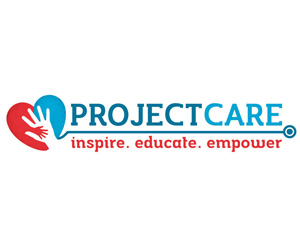Chronic kidney disease patients who opt for peritoneal dialysis will now have access to more help at home with the launch of Active Global Specialised Caregivers’ (Active Global) home dialysis service. Partnering with a peritoneal dialysis manufacturing healthcare company, Active Global is the first private home-care provider in Singapore to offer home assistance for continuous ambulatory peritoneal dialysis (CAPD) and automated peritoneal dialysis (APD) to support the growing number of dialysis patients and help ease the high occupancies at dialysis centres.
The aim of Active Global’s home assistance service is for dialysis-trained nurses to help address the concerns and overcome the mental barriers towards in-home treatment and to familiarise patients with the peritoneal dialysis process so that they can eventually assume control of their own treatment confidently and independently.
The company offers a range of home dialysis assistance options including a weekly visit package at S$380 per month, a fortnightly visit package at S$190 per month as well as ad-hoc visits by the dialysis nurses according to the specific needs of the patients. From trouble-shooting issues in the dialysis process, dressing wounds and administering injections, right through to hand-holding throughout the peritoneal dialysis exchange, Active Global’s holistic care options also extend to retraining stable dialysis patients or their caregivers who want to (re-)familiarise with the process. Arrangements for dialysis-trained live-in caregivers (foreign trained nurses and nursing aides) can also be made for patients who require long-term assistance.

Yorelle Kalika, founder and CEO of Active Global Specialised Caregivers, said: “We hope that this will not only address some of the concerns relating to home dialysis, help patients comply with an effective and efficient treatment plan, but also reduce the corresponding need for re-admissions to hospitals and the associated costs. In essence we hope to enhance the overall quality of life for dialysis patients and their family caregivers.”
She added: “With the fourth highest rate of kidney failure in the world, the demand for dialysis support in Singapore will only increase. Hopefully with more home assistance available, patients will be more open to this treatment modality, which can be done in the comforts of their own home and provide them with the flexibility that suits their lifestyle.”
In 2016, there were 6,400 renal disease patients requiring dialysis in Singapore and this number is expected to increase due to an ageing population and the prevalence of diabetes. Peritoneal dialysis, which involves a slow continuous therapy of over four to six hours, has its advantages over haemodialysis for certain groups of patients. It has been found to have less of a strain on the heart and blood levels, and is often the preferred modality for patients who fear needles or have small veins as it does not involve the drawing of blood. In addition to time saved from commuting to and from dialysis centres, peritoneal dialysis also allows patients to go about their activities at home during treatment, adjust it to fit their routines, and with greater ease of travel.
According to Active Global, all of its dialysis-trained live-in caregivers undergo a five-day course that entails learning how to measure vital signs, environment and infection control, programme setting on the APD machine, connection and disconnection to the patient, and observation of the patient’s tolerance level and drain output during the therapy. An end-of-course assessment by a nurse trainer ensures they demonstrate full competency for peritoneal dialysis assistance before they are deployed.














